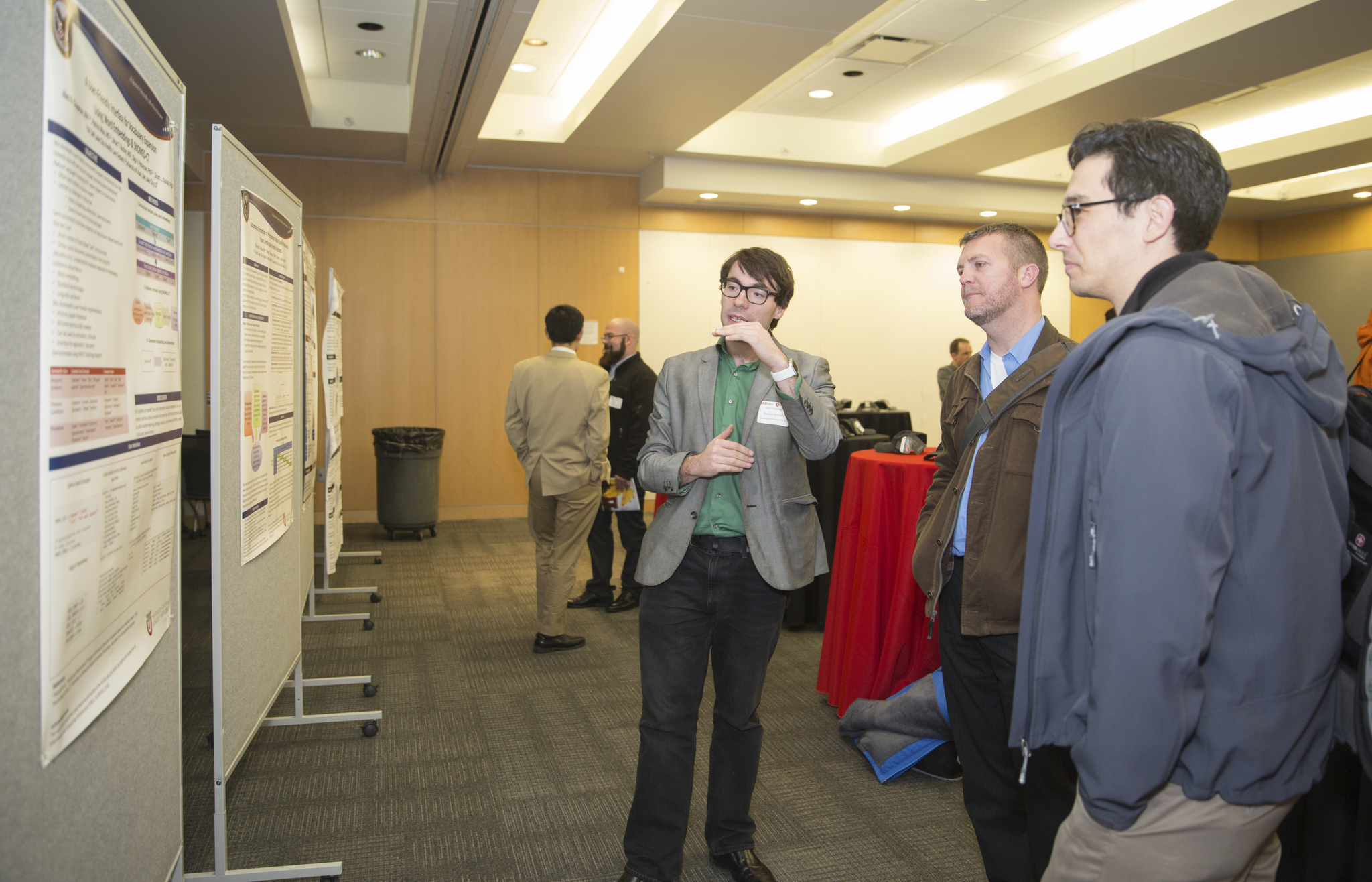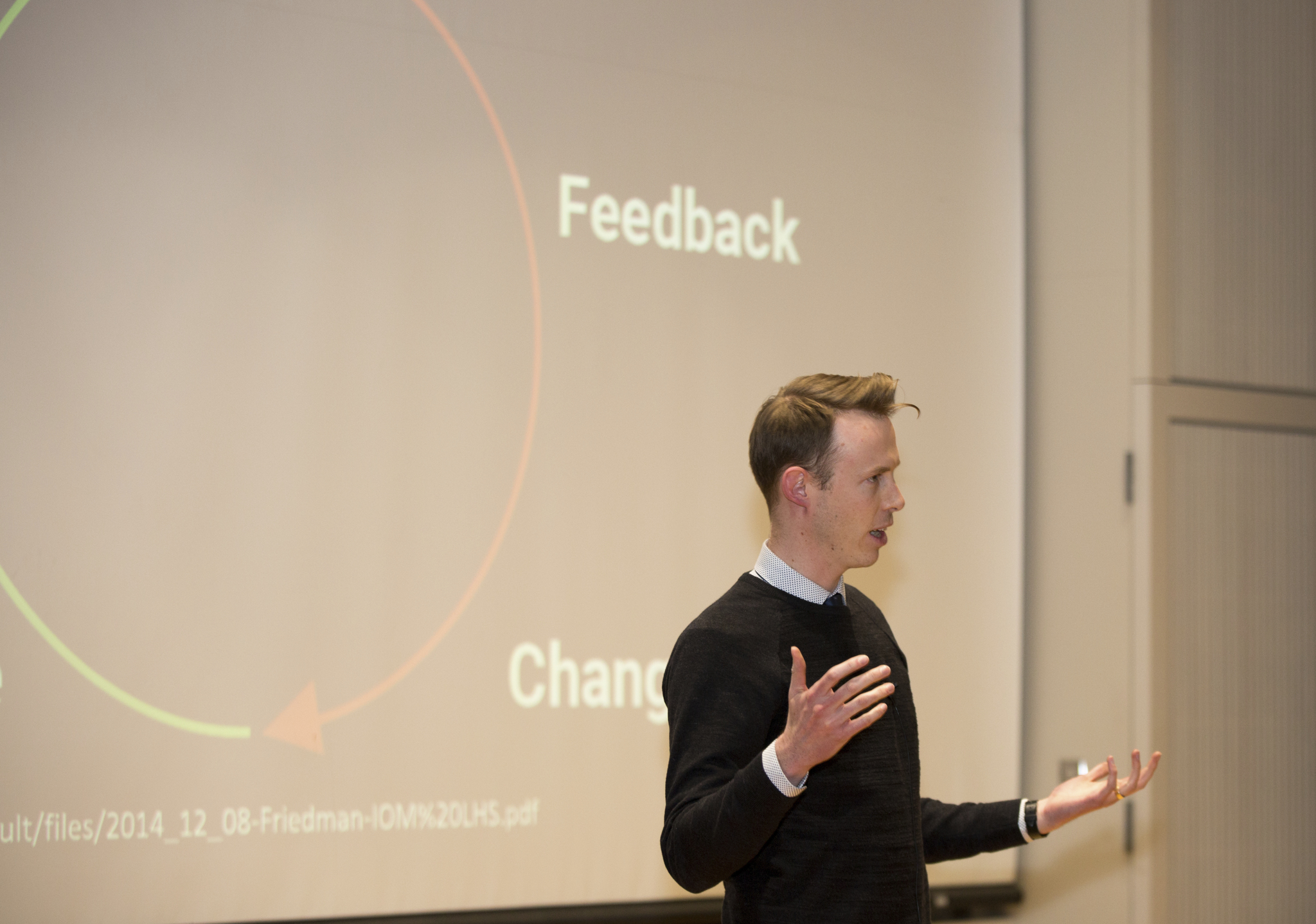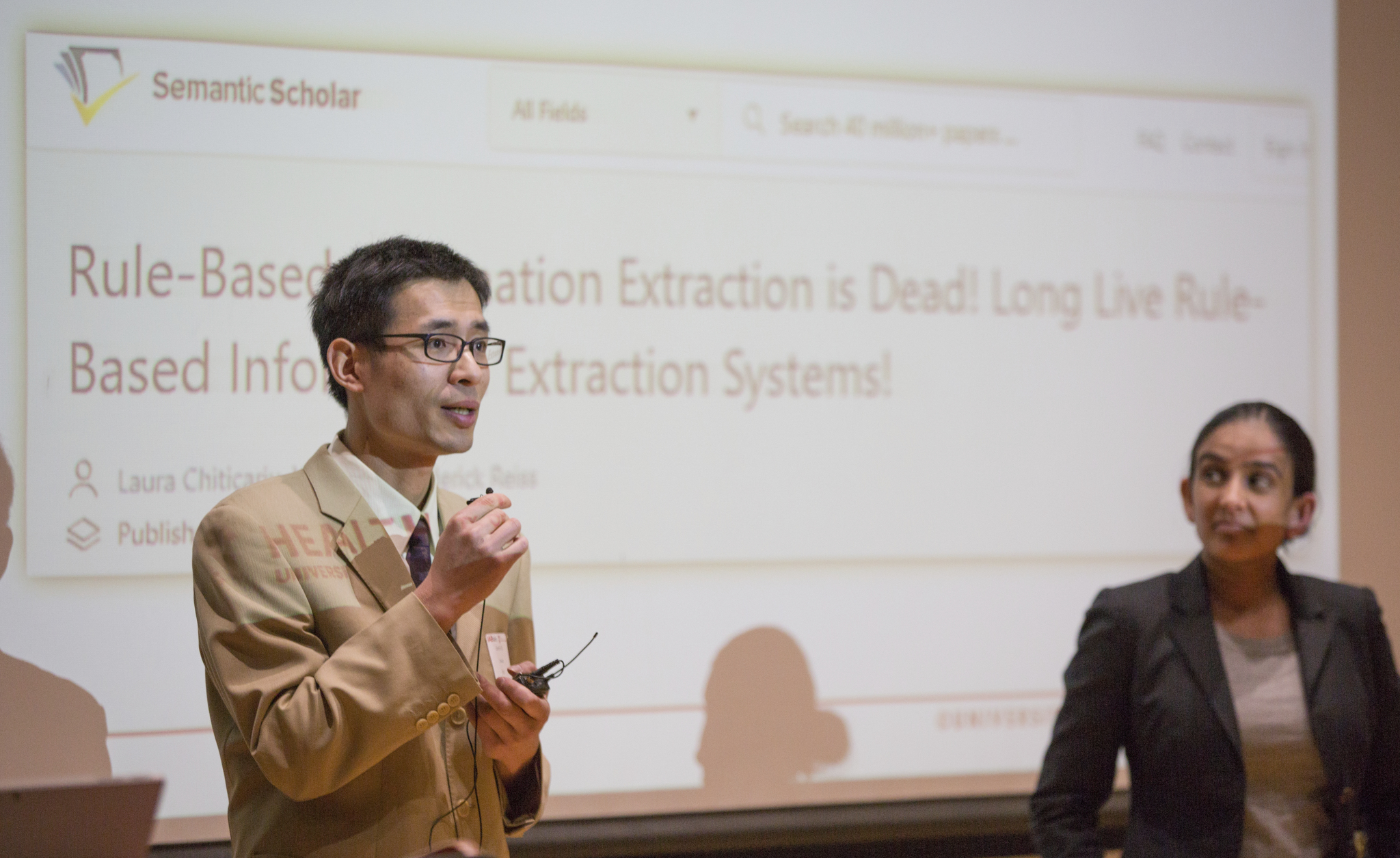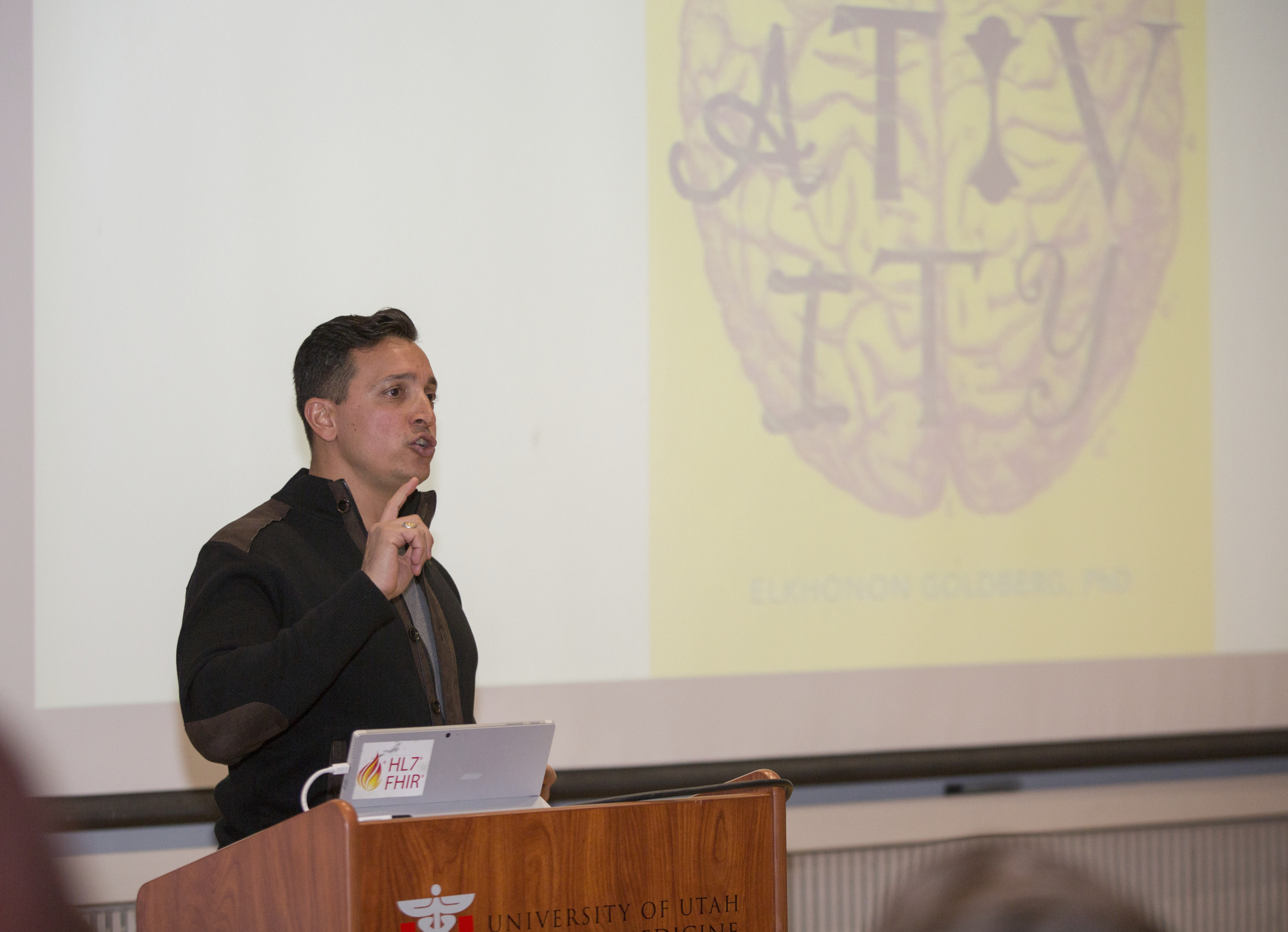Students, alumni, and faculty from the Department of Biomedical Informatics (DBMI) and industry  representatives from the community braved cold weather and 6 inches of snow to attend the debut of IABTalks, a new networking event sponsored by the DBMI’s Industry Advisory Board (IAB).
representatives from the community braved cold weather and 6 inches of snow to attend the debut of IABTalks, a new networking event sponsored by the DBMI’s Industry Advisory Board (IAB).
IABTalks was created to bring individuals and groups in the Salt Lake Valley together to learn about cutting edge research in informatics. Biomedical informatics is the science of analyzing and applying information to improve healthcare. With the tremendous access to information today, universities and industry need to work together to transform that information into actionable knowledge.
"IABTalks is a fantastic way for companies to network with researchers and students in the biomedical informatics space," explained Brian Jackson, IAB co-chair and CMIO of ARUP Laboratories. "It will strengthen their workforce recruiting and give them access to research resources that they wouldn't otherwise have. It's also a huge benefit to DBMI to get feedback from industry partners on the skills they need from their workforce."
The topic for the evening was natural language processing (NLP) and how it can be used to transform data in electronic medical records (EMRs). Natural language is what we use to communicate to each other. For doctors, it’s easier to write patient notes using the natural language that they use to tal k to patients.
k to patients.
"When I see a patient, I just want to write my impression and plan for the patient in plain English," explained Rashmee Shah, a cardiologist at the University of Utah. "I don’t want to click a check box. And when I want to know something about a patient, I read the notes."
The problem with recording patient information as text is that another person has to review the patient notes to get that information out of the EMR. Using computers can speed up this process but computers don’t understand words the way that we do; only 25% of the information in an EMR is in a format that computers understand. For computers to be helpful, we need to transform our natural language into something that it can understand and use. This is where NLP can be an important tool.
"NLP allows us t o unlock the rich information – including symptoms, allergies, procedures, and social risk factors – that is currently unavailable to computers," said Wendy Chapman, chair of DBMI.
o unlock the rich information – including symptoms, allergies, procedures, and social risk factors – that is currently unavailable to computers," said Wendy Chapman, chair of DBMI.
The first three presenters at IABTalks gave Ignite-style talks (20 slides in 5 minutes). Michael Dow, from Health Catalyst described how NLP is being used in industry. Two students from DBMI talked about their research. Max Taggart, who works with Shah, is developing an automated system for detecting patient bleeding events using patient notes. Jianlin Shi has created a fast and accurate algorithm that coders at Utah Health are using to find evidence of medically complex cases.
The presentations concluded with a TED-style talk from Gerasimos Petratos, CEO at Hiteks Solutions and DBMI alumnus. Petratos shared lessons learned during his career while developing new health technology and what it takes to innovate in healthcare. Petratos stated, "For us to be productive and take these innovations that are happening in biomedical informatics, we need to position any new technology for decision makers in the context of what’s already known, deduce what’s new, and then get the new technology out there so that physicians and patients can benefit."
For graduate student Shi, this was an important message to remember. "There are exciting things happening at DBMI and we are the ones that can start to change the field," Shi stated. "Improving healthcare is a long term goal, but, with the rapid growth of informatics, we can tackle the problem from a new perspective."
IABTalks concluded with a networking reception with poster presentations and industry booths. DBMI plans to hold IABTalks quarterly.
IABTalks - IAB Industry Presentation & Networking Mixer
Co-Hosted by Hiteks Solutions, Inc. & University of Utah Department of Biomedical Informatics
Friday, February 23, 2018, University of Utah, Eccles Institute for Human Genetics
Industry sponsors include Health Catalyst, ARUP, Ancestry, 3M technologies, and Intermountain Health Care.
by Robert Tennant (Original Article featured on Pulse)